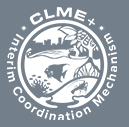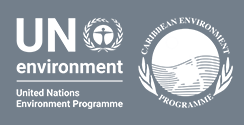|
Insular Caribbean
|
Central & North America |
South America |
Insular Caribbean |
Central & North America |
South America |
Displaying 61-70 of 98 results
 indicates that the Project Profile has been verified and it’s being managed by the project’s profile manager.
indicates that the Project Profile has been verified and it’s being managed by the project’s profile manager. -
Connecting Conservationists in the Caribbean Islands Hotspot
Conectando a los conservacionistas en el hotspot de las islas del CaribeBrief Description:The project supported a cohesive network of CEPF grantees in the Caribbean Islands Biodiversity Hotspot by providing high quality tools to share information and best practices. The grant supports the development and annual updating of project profiles in English, French and Spanish on the Eco-Index website; creation of grantee webpages; provision of online webinars and courses related to sustainable natural resource management; and promotion of CEPF projects through a variety of tools including feature interviews, articles and social media outlets.El proyecto apoyó una red cohesiva de beneficiarios del CEPF en el Hotspot de Biodiversidad de las Islas del Caribe al proporcionar herramientas de alta calidad para compartir información y mejores prácticas. Se apoyo el desarrollo y la actualización anual de perfiles de proyectos en inglés, francés y español en el sitio web de Eco-Index, se crearon de páginas web para beneficiarios, se ofrecieron seminarios en línea y cursos relacionados con la gestión sostenible de los recursos naturales; y se promocionaron proyectos del CEPF a través de una variedad de herramientas que incluyen entrevistas destacadas, artículos y medios de comunicación social.Lead Organization: Rainforest Alliance, IncDonor: CEPFProject ID: 60943Geographic Scope: Multicountry (regional)Project Status: CompletedLast Update: 26/10/2020
Start Date: 2012-04-01
End Date: 2016-04-01
Official Project Document: connecting-carribean-hotspot-Rainforest.pdfWebsite:https://www.cepf.net/grants/grantee-projects/connecting-conservationists-caribbean-islands-hotspotProject Profile Manager: Melissa Normann
Contact Email: mnormann@ra.org
Contact Phone:Partners:Grant (USD): $116,938.00Total co-financing (USD): $0.00(Co) financing not originating from GEF:Participating Country(s):Bahamas
Barbados
Dominica
Dominican Republic
Grenada
Haiti
Jamaica
Saint Lucia
Antigua and Barbuda
Saint Vincent and the Grenadines
Contributions to the 10-year CLME+ Strategic Action Programme (2015-2025)
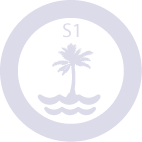
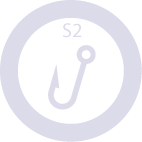

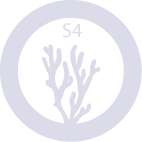
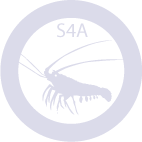

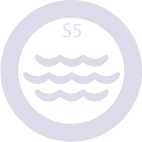
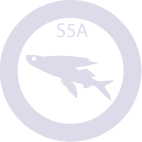
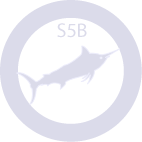
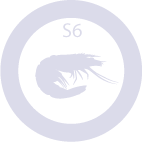 Please click on the colored SAP Strategy icon to obtain more information on the specific SAP Actions this initiative is contributing to1. Enhance the regional governance arrangements for the protection of the marine environment
Please click on the colored SAP Strategy icon to obtain more information on the specific SAP Actions this initiative is contributing to1. Enhance the regional governance arrangements for the protection of the marine environment
2. Enhance the regional governance arrangements for sustainable fisheries
3. Establish and operationalise a regional policy coordination mechanismfor ocean governance, with initial focus on shared Living Marine Resources
4. Enhance the governance arrangements for ecosystem-based management for reefs and associated ecosystems
4A. Enhance the governance arrangementsfor implementing an ecosystem approach for spiny lobster fisheries
4B. Enhance the governance arrangementsfor implementing an ecosystem approach for queen conch fisheries
5. Enhance the governance arrangements for implementing an ecosystem approach for pelagic fisheries
5A. Enhance the governance arrangements for implementing the ecosystem approach for flyingfish fisheries
5B. Enhance the governance arrangementsfor implementing an ecosystem approach for large pelagics fisheries
6. Implement EBM/EAF of the Guianas-Brazil continental shelf with special reference to the shrimp and groundfish fishery
Contributions to the 2030 UN Sustainable Development Agenda (SDG’s)
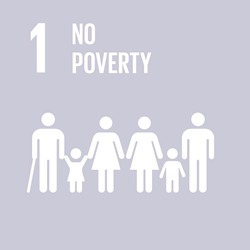
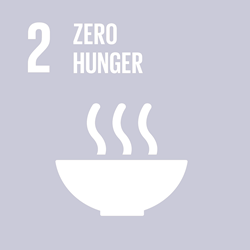
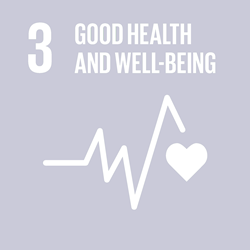
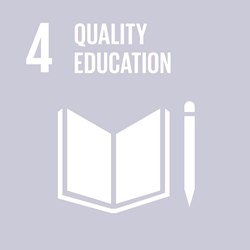
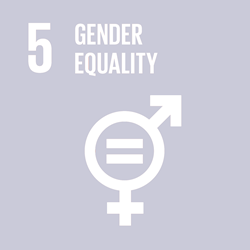
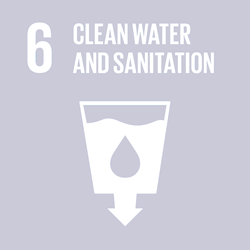
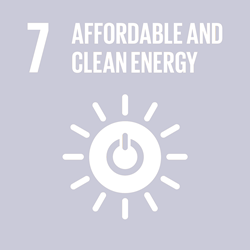
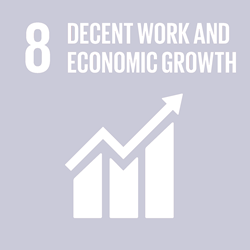
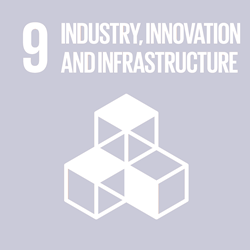
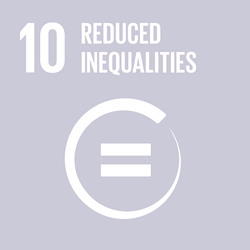
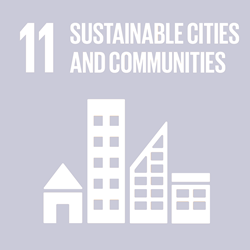
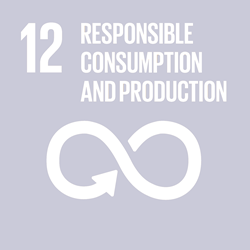
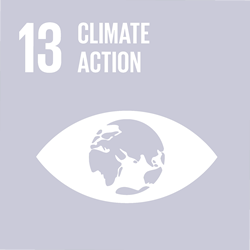
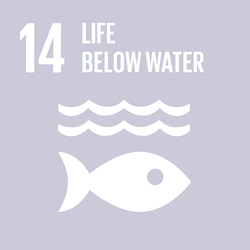
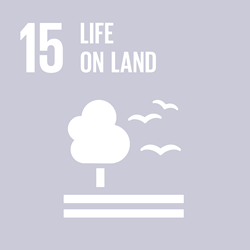
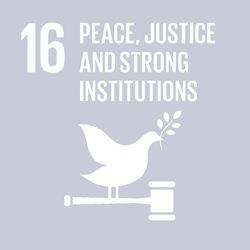
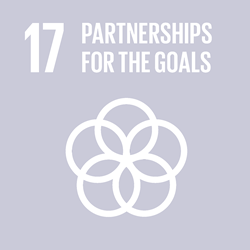
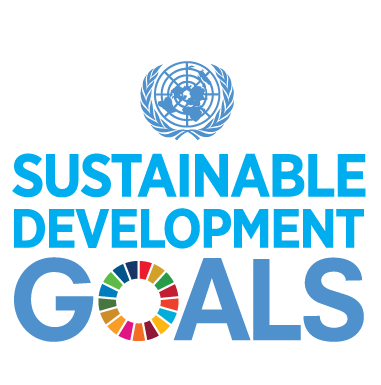 Please click on the SDG14 colored icon to see to which specific SDG14 targets this initiative is contributing.1. End poverty in all its forms everywhere
Please click on the SDG14 colored icon to see to which specific SDG14 targets this initiative is contributing.1. End poverty in all its forms everywhere
2 End hunger, achieve food security and improved nutrition and promote sustainable agriculture
3 Ensure healthy lives and promote well-being for all at all ages
4 Ensure inclusive and equitable quality education and promote lifelong learning opportunities for all
5 Achieve gender equality and empower all women and girls
6 Ensure availability and sustainable management of water and sanitation for all
7 Ensure access to affordable, reliable, sustainable and modern energy for all
8 Promote sustained, inclusive and sustainable economic growth, full and productive employment and decent work for all
9 Build resilient infrastructure, promote inclusive and sustainable industrialization and foster innovation
10 Reduce inequality within and among countries
11 Make cities and human settlements inclusive, safe, resilient and sustainable
12 Ensure sustainable consumption and production patterns
13 Take urgent action to combat climate change and its impacts
14 Conserve and sustainably use the oceans, seas and marine resources for sustainable development
15 Protect, restore and promote sustainable use of terrestrial ecosystems, sustainably manage forests, combat desertification, and halt and reverse land degradation and halt biodiversity loss
16 Promote peaceful and inclusive societies for sustainable development, provide access to justice for all and build effective, accountable and inclusive institutions at all levels
Other Regional and Global Commitments
Regional Emerging Issues
BE-CLME+ Promoting National Blue Economy Priorities Through Marine Spatial Planning in the Caribbean Large Marine Ecosystem Plus
Promocinando las prioridades nacionales de la economía azul a través de la planificación espacial marina en el gran ecosistema marino del Caribe +Brief Description:The project will contribute Blue Economic development and implementation plans for the Caribbean/CARICOM region, with tailored national blue economy and financing strategies to support sustainable development, and includes the use of MSP to inform establishment of MPAs and promotion of ecosystem-based fisheries management.\"El proyecto contribuirá a los planes de desarrollo e implementación de Blue Economic para la región del Caribe / CARICOM, con estrategias de financiación y economía azul nacionales adaptadas para apoyar el desarrollo sostenible, e incluye el uso de MSP para informar el establecimiento de AMP y la promoción de la ordenación pesquera basada en el ecosistema. \"Lead Organization: CRFMDonor: GEFProject ID: 10211Geographic Scope: Multicountry (regional)Project Status: OngoingLast Update: 26/10/2020
Start Date: 2019-12-01
End Date: 2023-12-01
Official Project Document: BE-CLME.pdfProject Profile Manager: Milton Haughton
Contact Email: milton.haughton@crfm.int
Contact Phone:Partners: FAO, CAF, National govermentsGrant (USD): $6,222,018.00Total co-financing (USD): $40,199,250.00(Co) financing not originating from GEF:Participating Country(s):Belize
Panama
Barbados
Jamaica
Saint Lucia
Contributions to the 10-year CLME+ Strategic Action Programme (2015-2025)
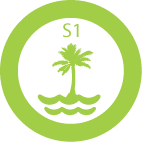
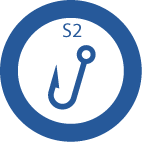

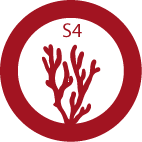





 Please click on the colored SAP Strategy icon to obtain more information on the specific SAP Actions this initiative is contributing to1. Enhance the regional governance arrangements for the protection of the marine environment
Please click on the colored SAP Strategy icon to obtain more information on the specific SAP Actions this initiative is contributing to1. Enhance the regional governance arrangements for the protection of the marine environment
1.3. Evaluate expansion and strengthening of the mandate of organizations to effectively address issues relating to habitat degradation and pollution in the marine environment1.5. Establish and/or enhance the capacity of the regional,sub-regional and national governance arrangements for the involvement of civil society in the implementation of the EBM/EAF approach (IGOs,NGOs,CBOs,private sector...)1.8. Establish and/or increase the capacity of (sub-)regional organizations and countries for integrating the management of terrestrial drainage basins with the management of the marine recipient basins and coastal development(CLME and NBSLME)1.10. Establish and/or enhance the data and information quality and collection and management capacity of the regional, sub-regional and nationalgovernance arrangements for the protection of the marine environment, including through the establishment of public-private partnerships2. Enhance the regional governance arrangements for sustainable fisheries
2.4. Establish and/or enhance the capacity of the regional, sub-regional and national governance arrangements for the broader involvement of society in the implementation of the EBM/EAF approach (IGOs, NGOs, CBOs, private sector...)2.8. Coordinate the development and implementation of regional, sub-regional and national initiatives to improve welfare and livelihoods through the provision of Decent Work(including through the development of alternative livelihoods, capacity building and pilot initiatives)3. Establish and operationalise a regional policy coordination mechanismfor ocean governance, with initial focus on shared Living Marine Resources
4. Enhance the governance arrangements for ecosystem-based management for reefs and associated ecosystems
4.4. Coordinate and enhance (sub-)regional and national efforts for the conservation of the biodiversity of reef and associated habitats, including through the strengthening of networks of marine protected areas (MPAs), and initiatives for sustainable reef fisheries* such as programmes dealing with alien invasive species4.7. Strengthen the capacity of Regional Fisheries Bodies to engage and build capacity among member States to implement the EBM/EAF approach, through National Action Plans (NAPs), data/information management and analysis, and operationalisation of national intersectoral coordination and consultation mechanisms that include science-policy interfaces4A. Enhance the governance arrangementsfor implementing an ecosystem approach for spiny lobster fisheries
4B. Enhance the governance arrangementsfor implementing an ecosystem approach for queen conch fisheries
5. Enhance the governance arrangements for implementing an ecosystem approach for pelagic fisheries
5A. Enhance the governance arrangements for implementing the ecosystem approach for flyingfish fisheries
5B. Enhance the governance arrangementsfor implementing an ecosystem approach for large pelagics fisheries
6. Implement EBM/EAF of the Guianas-Brazil continental shelf with special reference to the shrimp and groundfish fishery
Contributions to the 2030 UN Sustainable Development Agenda (SDG’s)












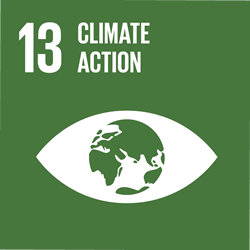
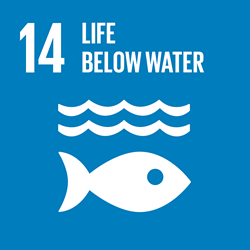



 Please click on the SDG14 colored icon to see to which specific SDG14 targets this initiative is contributing.1. End poverty in all its forms everywhere
Please click on the SDG14 colored icon to see to which specific SDG14 targets this initiative is contributing.1. End poverty in all its forms everywhere
2 End hunger, achieve food security and improved nutrition and promote sustainable agriculture
3 Ensure healthy lives and promote well-being for all at all ages
4 Ensure inclusive and equitable quality education and promote lifelong learning opportunities for all
5 Achieve gender equality and empower all women and girls
6 Ensure availability and sustainable management of water and sanitation for all
7 Ensure access to affordable, reliable, sustainable and modern energy for all
8 Promote sustained, inclusive and sustainable economic growth, full and productive employment and decent work for all
9 Build resilient infrastructure, promote inclusive and sustainable industrialization and foster innovation
10 Reduce inequality within and among countries
11 Make cities and human settlements inclusive, safe, resilient and sustainable
12 Ensure sustainable consumption and production patterns
13 Take urgent action to combat climate change and its impacts
13.1 Strengthen resilience and adaptive capacity to climate-related hazards and natural disasters in all countries14 Conserve and sustainably use the oceans, seas and marine resources for sustainable development
14.3 Minimize and address the impacts of ocean acidification, including through enhanced scientific cooperation at all levels14.4 By 2020, effectively regulate harvesting and end overfishing, illegal, unreported and unregulated fishing and destructive fishing practices and implement science-based management plans, in order to restore fish stocks in the shortest time feasible, at least to levels that can produce maximum sustainable yield as determined by their biological characteristics15 Protect, restore and promote sustainable use of terrestrial ecosystems, sustainably manage forests, combat desertification, and halt and reverse land degradation and halt biodiversity loss
16 Promote peaceful and inclusive societies for sustainable development, provide access to justice for all and build effective, accountable and inclusive institutions at all levels
Other Regional and Global Commitments
Regional Emerging Issues
Implementing Land, Water and Ecosystem Management in The Bahamas
Implementanfo la gestión de tierra, agua y ecosistemas en las BahamasBrief Description:The project will focus on developing a model of integrated land, water and ecosystem management prioritizing biodiversity conservation and sustainable infrastructure development which will reduce pressures on natural resources.El proyecto se centrará en el desarrollo de un modelo de gestión integrada de la tierra, el agua y los ecosistemas que priorice la conservación de la biodiversidad y el desarrollo de infraestructura sostenible que reducirá las presiones sobre los recursos naturales.Lead Organization: UNEP-CEPDonor: GEFProject ID: 5757Geographic Scope: NationalProject Status: OngoingLast Update: 26/10/2020
Start Date: 2020-01-01
End Date: 2023-12-01
Official Project Document: UNEP-CEP-GEF-5757.pdfProject Profile Manager: Christopher Corbin
Contact Email: christopher.corbin@un.org
Contact Phone:Partners: BEST Comission, Ministry of Housing and EnvironmentGrant (USD): $863,242.00Total co-financing (USD): $867,250.00(Co) financing not originating from GEF:Participating Country(s):Bahamas
Contributions to the 10-year CLME+ Strategic Action Programme (2015-2025)









 Please click on the colored SAP Strategy icon to obtain more information on the specific SAP Actions this initiative is contributing to1. Enhance the regional governance arrangements for the protection of the marine environment
Please click on the colored SAP Strategy icon to obtain more information on the specific SAP Actions this initiative is contributing to1. Enhance the regional governance arrangements for the protection of the marine environment
1.2. Establish and strengthen regional institutional coordination and cooperation arrangements1.6. Enhance the capacity within and among arrangements to undertake and mainstream lessons learned and findings from monitoring,science and research in regional, sub-regional and national decision-making1.7. Establish and/or enhance the capacity within and among arrangements to undertake and mainstream valuation of ecosystem goods and services in regional, sub-regional and national decision-making and policy development1.11. Establish and/or enhance the capacity of the regional, sub –regional and national governance arrangements for the monitoring, assessment and reporting on the state of the marine environment2. Enhance the regional governance arrangements for sustainable fisheries
3. Establish and operationalise a regional policy coordination mechanismfor ocean governance, with initial focus on shared Living Marine Resources
4. Enhance the governance arrangements for ecosystem-based management for reefs and associated ecosystems
4A. Enhance the governance arrangementsfor implementing an ecosystem approach for spiny lobster fisheries
4B. Enhance the governance arrangementsfor implementing an ecosystem approach for queen conch fisheries
5. Enhance the governance arrangements for implementing an ecosystem approach for pelagic fisheries
5A. Enhance the governance arrangements for implementing the ecosystem approach for flyingfish fisheries
5B. Enhance the governance arrangementsfor implementing an ecosystem approach for large pelagics fisheries
6. Implement EBM/EAF of the Guianas-Brazil continental shelf with special reference to the shrimp and groundfish fishery
Contributions to the 2030 UN Sustainable Development Agenda (SDG’s)

















 Please click on the SDG14 colored icon to see to which specific SDG14 targets this initiative is contributing.1. End poverty in all its forms everywhere
Please click on the SDG14 colored icon to see to which specific SDG14 targets this initiative is contributing.1. End poverty in all its forms everywhere
2 End hunger, achieve food security and improved nutrition and promote sustainable agriculture
3 Ensure healthy lives and promote well-being for all at all ages
4 Ensure inclusive and equitable quality education and promote lifelong learning opportunities for all
5 Achieve gender equality and empower all women and girls
6 Ensure availability and sustainable management of water and sanitation for all
7 Ensure access to affordable, reliable, sustainable and modern energy for all
8 Promote sustained, inclusive and sustainable economic growth, full and productive employment and decent work for all
9 Build resilient infrastructure, promote inclusive and sustainable industrialization and foster innovation
10 Reduce inequality within and among countries
11 Make cities and human settlements inclusive, safe, resilient and sustainable
12 Ensure sustainable consumption and production patterns
13 Take urgent action to combat climate change and its impacts
14 Conserve and sustainably use the oceans, seas and marine resources for sustainable development
14.2 By 2020, sustainably manage and protect marine and coastal ecosystems to avoid significant adverse impacts, including by strengthening their resilience, and take action for their restoration in order to achieve healthy and productive oceans14.7 By 2030, increase the economic benefits to Small Island developing States and least developed countries from the sustainable use of marine resources, including through sustainable management of fisheries, aquaculture and tourism14.a Increase scientific knowledge, develop research capacity and transfer marine technology, taking into account the Intergovernmental Oceanographic Commission Criteria and Guidelines on the Transfer of Marine Technology, in order to improve ocean health and to enhance the contribution of marine biodiversity to the development of developing countries, in particular small island developing States and least developed countries15 Protect, restore and promote sustainable use of terrestrial ecosystems, sustainably manage forests, combat desertification, and halt and reverse land degradation and halt biodiversity loss
16 Promote peaceful and inclusive societies for sustainable development, provide access to justice for all and build effective, accountable and inclusive institutions at all levels
Other Regional and Global Commitments
Regional Emerging Issues
Reduce marine plastics and plastic pollution by supporting governments and businesses at the city level to accelerate the transition to a circular economy
Reduccion de los plásticos marinos y la contaminación plástica apoyando a los gobiernos y empresas a nivel de ciudad para acelerar la transición a una economía circular.Brief Description:This project seeks to reduce regional marine plastics and plastic pollution by facilitating governments and businesses at the city-level, to accelerate the transition to a circular economy thereby responding to national, regional and global marine litter and plastics-related action plans, resolutions and commitments.Este proyecto busca reducir los plásticos marinos en la region y la contaminación plástica facilitando el que los gobiernos y las empresas a nivel de ciudad aceleren la transición a una economía circular, respondiendo así a los planes de acción, resoluciones y compromisos nacionales, regionales y globales relacionados con la basura marina y los plásticos.Lead Organization: UNEP-CEPDonor: GEFProject ID:Geographic Scope: Multicountry (regional)Project Status: Hard PipelineLast Update: 26/10/2020
Start Date:
End Date:Website:Project Profile Manager: Christopher Corbin
Contact Email: christopher.corbin@un.org
Contact Phone:Partners:Grant (USD): $8,720,000.00Total co-financing (USD): $0.00(Co) financing not originating from GEF:Participating Country(s):Brazil
Colombia
Honduras
Panama
Jamaica
Contributions to the 10-year CLME+ Strategic Action Programme (2015-2025)









 Please click on the colored SAP Strategy icon to obtain more information on the specific SAP Actions this initiative is contributing to1. Enhance the regional governance arrangements for the protection of the marine environment
Please click on the colored SAP Strategy icon to obtain more information on the specific SAP Actions this initiative is contributing to1. Enhance the regional governance arrangements for the protection of the marine environment
1.3. Evaluate expansion and strengthening of the mandate of organizations to effectively address issues relating to habitat degradation and pollution in the marine environment2. Enhance the regional governance arrangements for sustainable fisheries
3. Establish and operationalise a regional policy coordination mechanismfor ocean governance, with initial focus on shared Living Marine Resources
4. Enhance the governance arrangements for ecosystem-based management for reefs and associated ecosystems
4A. Enhance the governance arrangementsfor implementing an ecosystem approach for spiny lobster fisheries
4B. Enhance the governance arrangementsfor implementing an ecosystem approach for queen conch fisheries
5. Enhance the governance arrangements for implementing an ecosystem approach for pelagic fisheries
5A. Enhance the governance arrangements for implementing the ecosystem approach for flyingfish fisheries
5B. Enhance the governance arrangementsfor implementing an ecosystem approach for large pelagics fisheries
6. Implement EBM/EAF of the Guianas-Brazil continental shelf with special reference to the shrimp and groundfish fishery
Contributions to the 2030 UN Sustainable Development Agenda (SDG’s)

















 Please click on the SDG14 colored icon to see to which specific SDG14 targets this initiative is contributing.1. End poverty in all its forms everywhere
Please click on the SDG14 colored icon to see to which specific SDG14 targets this initiative is contributing.1. End poverty in all its forms everywhere
2 End hunger, achieve food security and improved nutrition and promote sustainable agriculture
3 Ensure healthy lives and promote well-being for all at all ages
4 Ensure inclusive and equitable quality education and promote lifelong learning opportunities for all
5 Achieve gender equality and empower all women and girls
6 Ensure availability and sustainable management of water and sanitation for all
7 Ensure access to affordable, reliable, sustainable and modern energy for all
8 Promote sustained, inclusive and sustainable economic growth, full and productive employment and decent work for all
9 Build resilient infrastructure, promote inclusive and sustainable industrialization and foster innovation
10 Reduce inequality within and among countries
11 Make cities and human settlements inclusive, safe, resilient and sustainable
12 Ensure sustainable consumption and production patterns
13 Take urgent action to combat climate change and its impacts
14 Conserve and sustainably use the oceans, seas and marine resources for sustainable development
14.2 By 2020, sustainably manage and protect marine and coastal ecosystems to avoid significant adverse impacts, including by strengthening their resilience, and take action for their restoration in order to achieve healthy and productive oceans14.4 By 2020, effectively regulate harvesting and end overfishing, illegal, unreported and unregulated fishing and destructive fishing practices and implement science-based management plans, in order to restore fish stocks in the shortest time feasible, at least to levels that can produce maximum sustainable yield as determined by their biological characteristics15 Protect, restore and promote sustainable use of terrestrial ecosystems, sustainably manage forests, combat desertification, and halt and reverse land degradation and halt biodiversity loss
16 Promote peaceful and inclusive societies for sustainable development, provide access to justice for all and build effective, accountable and inclusive institutions at all levels
Other Regional and Global Commitments
Regional Emerging Issues
OCEANINVEST Harnessing the next generation of decision tools and sustainable finance mechanisms to build a nature-based blue economy in the Caribbean
Utilizando herramientas de decisión y mecanismos de financiación sostenible innovadoras para construir una economía azul basada en la naturaleza en el CaribeBrief Description:The proposed project seeks to improve coastal and marine ecosystem health through the application of innovative nature-based blue economy tools and financial mechanisms. It intends to build upon a growing baseline and bring together a variety of stakeholders to jointly harness blue economy approaches and opportunities.La propuesta de proyecto busca mejorar la salud de los ecosistemas costeros y marinos mediante la aplicación de herramientas y mecanismos financieros innovadores de economía azul basados en la naturaleza. Tiene la intención de construir sobre una base de referencia creciente y reunir a una variedad de actores interesados en aprovechar conjuntamente los enfoques y oportunidades de la economía azul.Lead Organization: UNEP-CEPDonor: GEFProject ID:Geographic Scope: Multicountry (regional)Project Status: Hard PipelineLast Update: 26/10/2020
Start Date:
End Date:Website:Project Profile Manager: Ileana Lopez
Contact Email: ileana.lopez@un.org
Contact Phone:Partners:Grant (USD): $10,000,000.00Total co-financing (USD): $0.00(Co) financing not originating from GEF:Participating Country(s):Dominican Republic
Grenada
Jamaica
Saint Lucia
Contributions to the 10-year CLME+ Strategic Action Programme (2015-2025)









 Please click on the colored SAP Strategy icon to obtain more information on the specific SAP Actions this initiative is contributing to1. Enhance the regional governance arrangements for the protection of the marine environment
Please click on the colored SAP Strategy icon to obtain more information on the specific SAP Actions this initiative is contributing to1. Enhance the regional governance arrangements for the protection of the marine environment
2. Enhance the regional governance arrangements for sustainable fisheries
2.8. Coordinate the development and implementation of regional, sub-regional and national initiatives to improve welfare and livelihoods through the provision of Decent Work(including through the development of alternative livelihoods, capacity building and pilot initiatives)3. Establish and operationalise a regional policy coordination mechanismfor ocean governance, with initial focus on shared Living Marine Resources
4. Enhance the governance arrangements for ecosystem-based management for reefs and associated ecosystems
4A. Enhance the governance arrangementsfor implementing an ecosystem approach for spiny lobster fisheries
4B. Enhance the governance arrangementsfor implementing an ecosystem approach for queen conch fisheries
5. Enhance the governance arrangements for implementing an ecosystem approach for pelagic fisheries
5A. Enhance the governance arrangements for implementing the ecosystem approach for flyingfish fisheries
5B. Enhance the governance arrangementsfor implementing an ecosystem approach for large pelagics fisheries
6. Implement EBM/EAF of the Guianas-Brazil continental shelf with special reference to the shrimp and groundfish fishery
Contributions to the 2030 UN Sustainable Development Agenda (SDG’s)







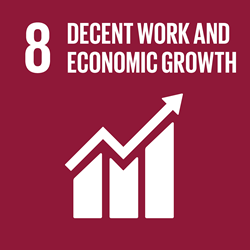









 Please click on the SDG14 colored icon to see to which specific SDG14 targets this initiative is contributing.1. End poverty in all its forms everywhere
Please click on the SDG14 colored icon to see to which specific SDG14 targets this initiative is contributing.1. End poverty in all its forms everywhere
2 End hunger, achieve food security and improved nutrition and promote sustainable agriculture
3 Ensure healthy lives and promote well-being for all at all ages
4 Ensure inclusive and equitable quality education and promote lifelong learning opportunities for all
5 Achieve gender equality and empower all women and girls
6 Ensure availability and sustainable management of water and sanitation for all
7 Ensure access to affordable, reliable, sustainable and modern energy for all
8 Promote sustained, inclusive and sustainable economic growth, full and productive employment and decent work for all
8.1 Sustain per capita economic growth in accordance with national circumstances and, in particular, at least 7 per cent gross domestic product growth per annum in the least developed countries9 Build resilient infrastructure, promote inclusive and sustainable industrialization and foster innovation
10 Reduce inequality within and among countries
11 Make cities and human settlements inclusive, safe, resilient and sustainable
12 Ensure sustainable consumption and production patterns
13 Take urgent action to combat climate change and its impacts
14 Conserve and sustainably use the oceans, seas and marine resources for sustainable development
14.7 By 2030, increase the economic benefits to Small Island developing States and least developed countries from the sustainable use of marine resources, including through sustainable management of fisheries, aquaculture and tourism15 Protect, restore and promote sustainable use of terrestrial ecosystems, sustainably manage forests, combat desertification, and halt and reverse land degradation and halt biodiversity loss
16 Promote peaceful and inclusive societies for sustainable development, provide access to justice for all and build effective, accountable and inclusive institutions at all levels
Other Regional and Global Commitments
Regional Emerging Issues
CReW+: An integrated approach to water and waste water management using innovative solutions and promoting financing mechanisms in the Wider Caribbean Region
Un enfoque integrado para la gestión del agua y las aguas residuales utilizando soluciones innovadoras y promoviendo mecanismos de financiamiento en la Región del Gran CaribeBrief Description:To implement innovative technical small-scale solutions in the Wider Caribbean Region using an integrated water and wastewater management approach building on sustainable financing mechanisms piloted through the Caribbean Regional Fund for Wastewater Management.Implementar soluciones técnicas innovadoras a pequeña escala en la Región del Gran Caribe utilizando un enfoque integrado de gestión de agua y aguas residuales basado en mecanismos de financiamiento sostenibles puestos a prueba a través del Fondo Regional del Caribe para la Gestión de Aguas Residuales.Lead Organization: UNEP-CEPDonor: GEFProject ID: 9601Geographic Scope: Multicountry (regional)Project Status: OngoingLast Update: 19/10/2020
Start Date: 2020-06-01
End Date: 2023-06-01Project Profile Manager: Christopher Corbin
Contact Email: Christopher.corbin@un.org
Contact Phone:Partners:Grant (USD): $14,943,938.00Total co-financing (USD): $150,033,203.00(Co) financing not originating from GEF:Participating Country(s):Belize
Colombia
Costa Rica
Guatemala
Guyana
Honduras
Panama
Mexico
Suriname
Barbados
Cuba
Dominican Republic
Grenada
Jamaica
Saint Lucia
Trinidad and Tobago
Saint Kitts and Nevis
Saint Vincent and the Grenadines
Contributions to the 10-year CLME+ Strategic Action Programme (2015-2025)









 Please click on the colored SAP Strategy icon to obtain more information on the specific SAP Actions this initiative is contributing to1. Enhance the regional governance arrangements for the protection of the marine environment
Please click on the colored SAP Strategy icon to obtain more information on the specific SAP Actions this initiative is contributing to1. Enhance the regional governance arrangements for the protection of the marine environment
2. Enhance the regional governance arrangements for sustainable fisheries
3. Establish and operationalise a regional policy coordination mechanismfor ocean governance, with initial focus on shared Living Marine Resources
4. Enhance the governance arrangements for ecosystem-based management for reefs and associated ecosystems
4A. Enhance the governance arrangementsfor implementing an ecosystem approach for spiny lobster fisheries
4B. Enhance the governance arrangementsfor implementing an ecosystem approach for queen conch fisheries
5. Enhance the governance arrangements for implementing an ecosystem approach for pelagic fisheries
5A. Enhance the governance arrangements for implementing the ecosystem approach for flyingfish fisheries
5B. Enhance the governance arrangementsfor implementing an ecosystem approach for large pelagics fisheries
6. Implement EBM/EAF of the Guianas-Brazil continental shelf with special reference to the shrimp and groundfish fishery
Contributions to the 2030 UN Sustainable Development Agenda (SDG’s)

















 Please click on the SDG14 colored icon to see to which specific SDG14 targets this initiative is contributing.1. End poverty in all its forms everywhere
Please click on the SDG14 colored icon to see to which specific SDG14 targets this initiative is contributing.1. End poverty in all its forms everywhere
2 End hunger, achieve food security and improved nutrition and promote sustainable agriculture
3 Ensure healthy lives and promote well-being for all at all ages
4 Ensure inclusive and equitable quality education and promote lifelong learning opportunities for all
5 Achieve gender equality and empower all women and girls
6 Ensure availability and sustainable management of water and sanitation for all
7 Ensure access to affordable, reliable, sustainable and modern energy for all
8 Promote sustained, inclusive and sustainable economic growth, full and productive employment and decent work for all
9 Build resilient infrastructure, promote inclusive and sustainable industrialization and foster innovation
10 Reduce inequality within and among countries
11 Make cities and human settlements inclusive, safe, resilient and sustainable
12 Ensure sustainable consumption and production patterns
13 Take urgent action to combat climate change and its impacts
14 Conserve and sustainably use the oceans, seas and marine resources for sustainable development
14.1 By 2025, prevent and significantly reduce marine pollution of all kinds, in particular from land-based activities, including marine debris and nutrient pollution14.2 By 2020, sustainably manage and protect marine and coastal ecosystems to avoid significant adverse impacts, including by strengthening their resilience, and take action for their restoration in order to achieve healthy and productive oceans14.7 By 2030, increase the economic benefits to Small Island developing States and least developed countries from the sustainable use of marine resources, including through sustainable management of fisheries, aquaculture and tourism15 Protect, restore and promote sustainable use of terrestrial ecosystems, sustainably manage forests, combat desertification, and halt and reverse land degradation and halt biodiversity loss
16 Promote peaceful and inclusive societies for sustainable development, provide access to justice for all and build effective, accountable and inclusive institutions at all levels
Other Regional and Global Commitments
Regional Emerging Issues
ECMMAN Eastern Caribbean Marine Managed Areas Network
Red de áreas gestionadas marinas del Caribe OrientalBrief Description:The ECMMAN project helped six Eastern Caribbean realize national and regional commitments to protect their nearshore and marine resources under the Caribbean Challenge Initiative, among other environmental commitments and policies. Its goal is to build a network of marine managed areas (MMAs) throughout the islands of St. Kitts and Nevis, Antigua and Barbuda, Dominica, Saint Lucia, St. Vincent and the Grenadines, and Grenada. The area of effectively managed MMAs and provides for improved livelihood opportunities. 19 successful project proposals were developed and implemented with a total of 23 beneficiaries, while another 2 other applicants received assistance in capacity building to assist them with project development. ECMMAN supported the establishment of National Conservation Trust Funds in Antigua and Barbuda, St. Kitts and Nevis, St. Vincent and the Grenadines, Saint Lucia and Grenada. The Trust Funds will develop local revenue streams as well as access regional endowment funds and funnel money to local organizations through small grants.El proyecto ECMMAN ayudó a seis países del Caribe Oriental a realizar compromisos nacionales y regionales para proteger sus recursos marinos y costeros bajo la Iniciativa del Desafío del Caribe, entre otros compromisos y políticas ambientales. Su objetivo comsisitio en construir una red de áreas marinas gestionadas (MMA) en las islas de St. Kitts y Nevis, Antigua y Barbuda, Dominica, Santa Lucía, San Vicente y las Granadinas y Granada. El ámbito de las MMA gestionadas de forma eficaz y proporciona mejores oportunidades de medios de vida. Se desarrollaron e implementaron 19 propuestas de proyectos exitosas con un total de 23 beneficiarios, mientras que otros 2 solicitantes recibieron asistencia en la creación de capacidad para ayudarlos con el desarrollo del proyecto. ECMMAN apoyó el establecimiento de fondos fiduciarios nacionales para la conservación en Antigua y Barbuda, San Cristóbal y Nieves, San Vicente y las Granadinas, Santa Lucía y Granada. Los fondos fiduciarios desarrollarán fuentes de ingresos locales, así como también accederán a fondos de dotación regionales y canalizarán dinero a organizaciones locales a través de pequeñas subvenciones.Lead Organization: TNCDonor: The German Federal Ministry for the Environment, Nature Conservation, Building and Nuclear SafetyProject ID:Geographic Scope: Multicountry (regional)Project Status: CompletedLast Update: 19/10/2020
Start Date: 2013
End Date: 2017
Official Project Document: ECMMAN-Project-Fact-Sheet-May-2014.pdfProject Profile Manager: Sherry Constantine
Contact Email: sconstantine@tnc.org
Contact Phone:Partners: OECS, CaMPAM, SPAW-RAC, the Caribbean Network of Fisherfolk OrganizationsGrant (USD): $4,800,000.00Total co-financing (USD): $0.00(Co) financing not originating from GEF:Participating Country(s):Dominica
Grenada
Saint Lucia
Antigua and Barbuda
Saint Kitts and Nevis
Saint Vincent and the Grenadines
Contributions to the 10-year CLME+ Strategic Action Programme (2015-2025)









 Please click on the colored SAP Strategy icon to obtain more information on the specific SAP Actions this initiative is contributing to1. Enhance the regional governance arrangements for the protection of the marine environment
Please click on the colored SAP Strategy icon to obtain more information on the specific SAP Actions this initiative is contributing to1. Enhance the regional governance arrangements for the protection of the marine environment
2. Enhance the regional governance arrangements for sustainable fisheries
2.4. Establish and/or enhance the capacity of the regional, sub-regional and national governance arrangements for the broader involvement of society in the implementation of the EBM/EAF approach (IGOs, NGOs, CBOs, private sector...)2.7. Coordinate the development and implementation of regional, sub-regional and national initiatives for sustainable small scale fisheries (including capacity building and pilot initiatives)3. Establish and operationalise a regional policy coordination mechanismfor ocean governance, with initial focus on shared Living Marine Resources
4. Enhance the governance arrangements for ecosystem-based management for reefs and associated ecosystems
4.4. Coordinate and enhance (sub-)regional and national efforts for the conservation of the biodiversity of reef and associated habitats, including through the strengthening of networks of marine protected areas (MPAs), and initiatives for sustainable reef fisheries* such as programmes dealing with alien invasive species4.5. Develop and implement initiatives for sustainable livelihoods by building capacity for diversification, fostering and facilitating viable alternative sources of Decent Work and/or improved incomes, and creating addedvalue (e.g. through marketing and sales)4.6. Establish and/or enhance the institutional structure and capacity of (sub-)regional and national arrangements for implementing management and conservation measures for reef ecosystems4.7. Strengthen the capacity of Regional Fisheries Bodies to engage and build capacity among member States to implement the EBM/EAF approach, through National Action Plans (NAPs), data/information management and analysis, and operationalisation of national intersectoral coordination and consultation mechanisms that include science-policy interfaces4A. Enhance the governance arrangementsfor implementing an ecosystem approach for spiny lobster fisheries
4B. Enhance the governance arrangementsfor implementing an ecosystem approach for queen conch fisheries
5. Enhance the governance arrangements for implementing an ecosystem approach for pelagic fisheries
5A. Enhance the governance arrangements for implementing the ecosystem approach for flyingfish fisheries
5B. Enhance the governance arrangementsfor implementing an ecosystem approach for large pelagics fisheries
6. Implement EBM/EAF of the Guianas-Brazil continental shelf with special reference to the shrimp and groundfish fishery
Contributions to the 2030 UN Sustainable Development Agenda (SDG’s)

















 Please click on the SDG14 colored icon to see to which specific SDG14 targets this initiative is contributing.1. End poverty in all its forms everywhere
Please click on the SDG14 colored icon to see to which specific SDG14 targets this initiative is contributing.1. End poverty in all its forms everywhere
2 End hunger, achieve food security and improved nutrition and promote sustainable agriculture
3 Ensure healthy lives and promote well-being for all at all ages
4 Ensure inclusive and equitable quality education and promote lifelong learning opportunities for all
5 Achieve gender equality and empower all women and girls
6 Ensure availability and sustainable management of water and sanitation for all
7 Ensure access to affordable, reliable, sustainable and modern energy for all
8 Promote sustained, inclusive and sustainable economic growth, full and productive employment and decent work for all
9 Build resilient infrastructure, promote inclusive and sustainable industrialization and foster innovation
10 Reduce inequality within and among countries
11 Make cities and human settlements inclusive, safe, resilient and sustainable
12 Ensure sustainable consumption and production patterns
13 Take urgent action to combat climate change and its impacts
14 Conserve and sustainably use the oceans, seas and marine resources for sustainable development
14.2 By 2020, sustainably manage and protect marine and coastal ecosystems to avoid significant adverse impacts, including by strengthening their resilience, and take action for their restoration in order to achieve healthy and productive oceans14.7 By 2030, increase the economic benefits to Small Island developing States and least developed countries from the sustainable use of marine resources, including through sustainable management of fisheries, aquaculture and tourism14.b Provide access for small-scale artisanal fishers to marine resources and markets15 Protect, restore and promote sustainable use of terrestrial ecosystems, sustainably manage forests, combat desertification, and halt and reverse land degradation and halt biodiversity loss
16 Promote peaceful and inclusive societies for sustainable development, provide access to justice for all and build effective, accountable and inclusive institutions at all levels
Other Regional and Global Commitments
Regional Emerging Issues
SargAdapt Adapting to a new reality: Managing responses to influxes of Sargassum seaweed in the Eastern Caribbean as ecosystem hazards and opportunities
Adaptándose a una nueva realidad: Respuestas a las arribazones de algas Sargassum en el Caribe Oriental como amenazas y oportunidades para los ecosistemasBrief Description:The project is aimed to reduce the impacts of and improve adaptation to sargassum influxes in the Eastern Caribbean with emphasis on converting a climate-linked ecosystem hazard into an asset that supports opportunities for socio-economic development. It is comprised by three components: 1) To develop appropriate management responses to sargassum influxes to lessen damage to coastal and marine ecosystems and human livelihoods based on enhanced knowledge and understanding of patterns and impacts of sargassum influxes. This will enhance stakeholders’ knowledge to appropriately respond and adapt to sargassum influxes with good practices. 2) To enhance the technical and institutional capacity of stakeholders to cope with, plan for, sustainably manage, and adapt to sargassum influxes. This will build networks and partnerships among science, industry and community stakeholders to promote best practices and innovation and sustain adaptation to Sargassum influxes. 3) To reinforce the ability of marine and coastal stakeholders for adaptive planning, management and ecosystem and livelihood resilience through practical applications. This will enable Sargassum-Smart Communities with reduced climate risk and tangible climate adaptation benefits.El proyecto tiene como objetivo reducir los impactos y mejorar la adaptación a las arribazones de sargazo en el Caribe oriental, con énfasis en convertir un peligro del ecosistema vinculado al clima en un activo que respalde las oportunidades de desarrollo socioeconómico. Se compone de tres componentes: 1) Desarrollar respuestas de gestión adecuadas para reducir el daño a los ecosistemas costeros y marinos y los medios de vida humanos sobre la base de un mejor conocimiento y comprensión de los patrones e impactos de las arribazaciones de sargazo. Esto mejorará el conocimiento de las partes interesadas para responder y adaptarse adecuadamente a las afluencias de sargazo con buenas prácticas. 2) Mejorar la capacidad técnica e institucional de las partes interesadas para hacer frente, planificar, gestionar de forma sostenible y adaptarse a las afluencias de sargazo. Esto creará redes y asociaciones entre la ciencia, la industria y las partes interesadas de la comunidad para promover las mejores prácticas y la innovación y mantener la adaptación a las afluencias de Sargassum. 3) Reforzar la capacidad de las partes interesadas marinas y costeras para la planificación adaptativa, la gestión y la resiliencia de los ecosistemas y los medios de vida mediante aplicaciones prácticas. Esto permitirá a las comunidades Sargassum-Smart con un riesgo climático reducido y beneficios tangibles de adaptación al clima.Lead Organization: CERMESDonor: Caribbean Biodiversity Fund & International Climate Initiative (IKI)Project ID:Geographic Scope: Multicountry (regional)Project Status: OngoingLast Update: 19/10/2020
Start Date: 2020-05-01
End Date: 2023-05-01
Official Project Document: SSF_GENDER_PROJECT_ANNOUNCEMENT_FLYER_2020_01_22-1.pdfProject Profile Manager: Anna Karima Degia
Contact Email: annakarima.degia@cavehill.uwi.edu
Contact Phone:Partners: st.George Univ., Unv.North Carolina Wilmington, Sir Arthur Lewis Centre (SALISES), UWI sargassum company, CANARIGrant (USD): $981,393.00Total co-financing (USD): $0.00(Co) financing not originating from GEF:Participating Country(s):Barbados
Dominica
Grenada
Saint Lucia
Saint Vincent and the Grenadines
Contributions to the 10-year CLME+ Strategic Action Programme (2015-2025)









 Please click on the colored SAP Strategy icon to obtain more information on the specific SAP Actions this initiative is contributing to1. Enhance the regional governance arrangements for the protection of the marine environment
Please click on the colored SAP Strategy icon to obtain more information on the specific SAP Actions this initiative is contributing to1. Enhance the regional governance arrangements for the protection of the marine environment
1.3. Evaluate expansion and strengthening of the mandate of organizations to effectively address issues relating to habitat degradation and pollution in the marine environment1.6. Enhance the capacity within and among arrangements to undertake and mainstream lessons learned and findings from monitoring,science and research in regional, sub-regional and national decision-making2. Enhance the regional governance arrangements for sustainable fisheries
2.8. Coordinate the development and implementation of regional, sub-regional and national initiatives to improve welfare and livelihoods through the provision of Decent Work(including through the development of alternative livelihoods, capacity building and pilot initiatives)2.13. Establish and/or enhance the data and information quality and collection and management capacity of the regional, sub-regional and national fisheries governance arrangements, including through the establishment of public-private partnerships3. Establish and operationalise a regional policy coordination mechanismfor ocean governance, with initial focus on shared Living Marine Resources
4. Enhance the governance arrangements for ecosystem-based management for reefs and associated ecosystems
4.5. Develop and implement initiatives for sustainable livelihoods by building capacity for diversification, fostering and facilitating viable alternative sources of Decent Work and/or improved incomes, and creating addedvalue (e.g. through marketing and sales)4.7. Strengthen the capacity of Regional Fisheries Bodies to engage and build capacity among member States to implement the EBM/EAF approach, through National Action Plans (NAPs), data/information management and analysis, and operationalisation of national intersectoral coordination and consultation mechanisms that include science-policy interfaces4A. Enhance the governance arrangementsfor implementing an ecosystem approach for spiny lobster fisheries
4B. Enhance the governance arrangementsfor implementing an ecosystem approach for queen conch fisheries
5. Enhance the governance arrangements for implementing an ecosystem approach for pelagic fisheries
5A. Enhance the governance arrangements for implementing the ecosystem approach for flyingfish fisheries
5B. Enhance the governance arrangementsfor implementing an ecosystem approach for large pelagics fisheries
6. Implement EBM/EAF of the Guianas-Brazil continental shelf with special reference to the shrimp and groundfish fishery
Contributions to the 2030 UN Sustainable Development Agenda (SDG’s)



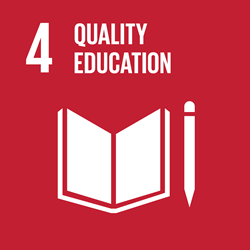













 Please click on the SDG14 colored icon to see to which specific SDG14 targets this initiative is contributing.1. End poverty in all its forms everywhere
Please click on the SDG14 colored icon to see to which specific SDG14 targets this initiative is contributing.1. End poverty in all its forms everywhere
2 End hunger, achieve food security and improved nutrition and promote sustainable agriculture
3 Ensure healthy lives and promote well-being for all at all ages
4 Ensure inclusive and equitable quality education and promote lifelong learning opportunities for all
4.1 By 2030, ensure that all girls and boys complete free, equitable and quality primary and secondary education leading to relevant and effective learning outcomes5 Achieve gender equality and empower all women and girls
6 Ensure availability and sustainable management of water and sanitation for all
7 Ensure access to affordable, reliable, sustainable and modern energy for all
8 Promote sustained, inclusive and sustainable economic growth, full and productive employment and decent work for all
9 Build resilient infrastructure, promote inclusive and sustainable industrialization and foster innovation
10 Reduce inequality within and among countries
11 Make cities and human settlements inclusive, safe, resilient and sustainable
12 Ensure sustainable consumption and production patterns
13 Take urgent action to combat climate change and its impacts
13.1 Strengthen resilience and adaptive capacity to climate-related hazards and natural disasters in all countries14 Conserve and sustainably use the oceans, seas and marine resources for sustainable development
14.2 By 2020, sustainably manage and protect marine and coastal ecosystems to avoid significant adverse impacts, including by strengthening their resilience, and take action for their restoration in order to achieve healthy and productive oceans15 Protect, restore and promote sustainable use of terrestrial ecosystems, sustainably manage forests, combat desertification, and halt and reverse land degradation and halt biodiversity loss
16 Promote peaceful and inclusive societies for sustainable development, provide access to justice for all and build effective, accountable and inclusive institutions at all levels
Other Regional and Global Commitments
Regional Emerging Issues
SSF-Gender Implementing gender aspects within SSF Guidelines and the protocol to the Caribbea Community Common Fisheries Policy (CCCFP) for securing SSF
 SSF-GeneroBrief Description:The project is aimed to provide more in-depth knowledge of gender in fisheries to inform the implementation of the SSF Guidelines, the CCCFP SSF Protocol, and to support FAO\'s Blue Growth initiative in various projects. Two main outputs are expected. The first is looking at communicating with policy making and policy advisors: Support the evidence-based and advocacy-oriented policy influence of project partners and facilitate planning of the International Year of Artisanal Fisheries and Aquaculture (IYAFA), 2022. Among the main activities are the selection of policy champions, and the testing of policy communication in about 3 countries, and the support planning for Year of Artisanal Fisheries and Aquaculture, 2022. The second will inform mainstreaming about gender analysis through using experiences and a study of gender in fisheries in CRFM countries to achieve both deeper and wider coverage linked especially to SDG 5 and SDG 14. The collection and use of sex disaggregated data and information will be supported and promoted as a good practice beyond the necessity in some projects.El proyecto tiene como objetivo proporcionar un conocimiento más profundo del componente de género en la pesca para informar acerca de la implementación de las Directrices PPE, el Protocolo PPE del CCCFP y para apoyar la iniciativa Crecimiento Azul de la FAO. Se esperan dos resultados principales. El primero consiste en comunicarse con los asesores de formulación de políticas para apoyar el que su influencia está basada en datos y orientada a la promoción de los actores de la pesca y facilitar la planificación del Año Internacional de la Pesca y la Acuicultura Artesanales (IYAFA), 2022. Entre las principales actividades se encuentran la selección de campeones de políticas y comunicaciones sobre políticas en 3 países. El segundo informará sobre la incorporación de una perspectiva de género basada en análisis de género y uso de experiencias, así como un estudio de género en la pesca en los países del CRFM para lograr una cobertura más profunda y amplia vinculada especialmente al ODS 5 y al ODS 14. Se apoyará la recopilación y el uso de datos e información desglosados por sexo y se promoverá como una buena práctica más allá de su necesidad en algunos proyectos.Lead Organization: CERMESDonor: FAOProject ID: 66060Geographic Scope: Multicountry (regional)Project Status: OngoingLast Update: 14/10/2020
SSF-GeneroBrief Description:The project is aimed to provide more in-depth knowledge of gender in fisheries to inform the implementation of the SSF Guidelines, the CCCFP SSF Protocol, and to support FAO\'s Blue Growth initiative in various projects. Two main outputs are expected. The first is looking at communicating with policy making and policy advisors: Support the evidence-based and advocacy-oriented policy influence of project partners and facilitate planning of the International Year of Artisanal Fisheries and Aquaculture (IYAFA), 2022. Among the main activities are the selection of policy champions, and the testing of policy communication in about 3 countries, and the support planning for Year of Artisanal Fisheries and Aquaculture, 2022. The second will inform mainstreaming about gender analysis through using experiences and a study of gender in fisheries in CRFM countries to achieve both deeper and wider coverage linked especially to SDG 5 and SDG 14. The collection and use of sex disaggregated data and information will be supported and promoted as a good practice beyond the necessity in some projects.El proyecto tiene como objetivo proporcionar un conocimiento más profundo del componente de género en la pesca para informar acerca de la implementación de las Directrices PPE, el Protocolo PPE del CCCFP y para apoyar la iniciativa Crecimiento Azul de la FAO. Se esperan dos resultados principales. El primero consiste en comunicarse con los asesores de formulación de políticas para apoyar el que su influencia está basada en datos y orientada a la promoción de los actores de la pesca y facilitar la planificación del Año Internacional de la Pesca y la Acuicultura Artesanales (IYAFA), 2022. Entre las principales actividades se encuentran la selección de campeones de políticas y comunicaciones sobre políticas en 3 países. El segundo informará sobre la incorporación de una perspectiva de género basada en análisis de género y uso de experiencias, así como un estudio de género en la pesca en los países del CRFM para lograr una cobertura más profunda y amplia vinculada especialmente al ODS 5 y al ODS 14. Se apoyará la recopilación y el uso de datos e información desglosados por sexo y se promoverá como una buena práctica más allá de su necesidad en algunos proyectos.Lead Organization: CERMESDonor: FAOProject ID: 66060Geographic Scope: Multicountry (regional)Project Status: OngoingLast Update: 14/10/2020
Start Date: 2020-01-01
End Date: 2021-03-31
Official Project Document: SSF_GENDER_PROJECT_ANNOUNCEMENT_FLYER_2020_01_22.pdfProject Profile Manager: Lisa Soares
Contact Email: lisa.soares@cavehill.uwi.edu
Contact Phone:Partners: FAOGrant (USD): $80,500.00Total co-financing (USD): $0.00(Co) financing not originating from GEF:Participating Country(s):Barbados
Jamaica
Saint Vincent and the Grenadines
Contributions to the 10-year CLME+ Strategic Action Programme (2015-2025)


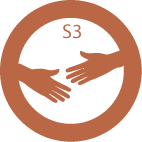






 Please click on the colored SAP Strategy icon to obtain more information on the specific SAP Actions this initiative is contributing to1. Enhance the regional governance arrangements for the protection of the marine environment
Please click on the colored SAP Strategy icon to obtain more information on the specific SAP Actions this initiative is contributing to1. Enhance the regional governance arrangements for the protection of the marine environment
2. Enhance the regional governance arrangements for sustainable fisheries
2.4. Establish and/or enhance the capacity of the regional, sub-regional and national governance arrangements for the broader involvement of society in the implementation of the EBM/EAF approach (IGOs, NGOs, CBOs, private sector...)2.7. Coordinate the development and implementation of regional, sub-regional and national initiatives for sustainable small scale fisheries (including capacity building and pilot initiatives)2.10. Establish and/or enhance the capacity to manage knowledge and to mainstream findings from monitoring, science and research in regional, sub-regional and national decision-making and policy development for sustainable fisheries3. Establish and operationalise a regional policy coordination mechanismfor ocean governance, with initial focus on shared Living Marine Resources
3.7. Facilitate the preparation of data and information products and the uptake of monitoring and research outputs by (sub)regional and national science-policy interfaces4. Enhance the governance arrangements for ecosystem-based management for reefs and associated ecosystems
4A. Enhance the governance arrangementsfor implementing an ecosystem approach for spiny lobster fisheries
4B. Enhance the governance arrangementsfor implementing an ecosystem approach for queen conch fisheries
5. Enhance the governance arrangements for implementing an ecosystem approach for pelagic fisheries
5A. Enhance the governance arrangements for implementing the ecosystem approach for flyingfish fisheries
5B. Enhance the governance arrangementsfor implementing an ecosystem approach for large pelagics fisheries
6. Implement EBM/EAF of the Guianas-Brazil continental shelf with special reference to the shrimp and groundfish fishery
Contributions to the 2030 UN Sustainable Development Agenda (SDG’s)

















 Please click on the SDG14 colored icon to see to which specific SDG14 targets this initiative is contributing.1. End poverty in all its forms everywhere
Please click on the SDG14 colored icon to see to which specific SDG14 targets this initiative is contributing.1. End poverty in all its forms everywhere
2 End hunger, achieve food security and improved nutrition and promote sustainable agriculture
3 Ensure healthy lives and promote well-being for all at all ages
4 Ensure inclusive and equitable quality education and promote lifelong learning opportunities for all
5 Achieve gender equality and empower all women and girls
6 Ensure availability and sustainable management of water and sanitation for all
7 Ensure access to affordable, reliable, sustainable and modern energy for all
8 Promote sustained, inclusive and sustainable economic growth, full and productive employment and decent work for all
9 Build resilient infrastructure, promote inclusive and sustainable industrialization and foster innovation
10 Reduce inequality within and among countries
11 Make cities and human settlements inclusive, safe, resilient and sustainable
12 Ensure sustainable consumption and production patterns
13 Take urgent action to combat climate change and its impacts
14 Conserve and sustainably use the oceans, seas and marine resources for sustainable development
14.7 By 2030, increase the economic benefits to Small Island developing States and least developed countries from the sustainable use of marine resources, including through sustainable management of fisheries, aquaculture and tourism14.b Provide access for small-scale artisanal fishers to marine resources and markets15 Protect, restore and promote sustainable use of terrestrial ecosystems, sustainably manage forests, combat desertification, and halt and reverse land degradation and halt biodiversity loss
16 Promote peaceful and inclusive societies for sustainable development, provide access to justice for all and build effective, accountable and inclusive institutions at all levels
Other Regional and Global Commitments
Regional Emerging Issues
EBM-DSS Biodiversity for Sustainable Development in the Caribbean through Ecosystem Based Management
 Gestión Ecosistémica de la Biodiversidad para el Desarrollo Sostenible del CaribeBrief Description:Develop partnerships to increase of technical skills on MPA management and enhanced the use of the methodological and operational tool for EBM-Decision Support System (EBM-DSS), providing decision makers with truly systemic objective planning and management capacities for sustainable development. The CaMPAM MPA database was significantly improved. The EBM-DSS tool was successfully applied in the Dominican Republic, in two pilot sites, Puerto Plata and Montecristi, with results emanating priority actions for implementation and monitoring. Training and capacity building were carried out in Spanish and English speaking countries, through the SPAW CaMPAM Programme (22 countries) in the Wider Caribbean, as well as through two main regional workshops carried out in synergy with institutional partners in the region. Dissemination and awareness raising of EBM-DSS were carried through different regional fora during the course of the project, as well as through a Teamwork Platform and short-term social media campaign led by CEP.Desarrollar alianzas para mejorar las habilidades técnicas en la gestión de las AMPs y el uso de una herramienta metodológica y operativa para el Sistema de Apoyo a la Toma de Decisión EBM (EBM-DSS), proporcionando a los tomadores de decisiones capacidades de planificación y gestión objetivas verdaderamente sistémicas para el desarrollo sostenible. La base de datos de AMP de CaMPAM se fortalecio significativamente. La herramienta EBM-DSS se aplicó con éxito en la República Dominicana, en dos sitios piloto, Puerto Plata y Montecristi, con resultados que emanan acciones prioritarias para su implementación y monitoreo. La capacitación y el desarrollo de capacidades se llevaron a cabo en países de habla hispana e inglesa, a través del Programa SPAW CaMPAM (22 países) en el Gran Caribe, así como a través de dos talleres regionales principales realizados en sinergia con socios institucionales en la región. La difusión y la sensibilización de EBM-DSS se llevaron a cabo a través de diferentes foros regionales durante el curso del proyecto, así como a través de una Plataforma de trabajo en equipo y una campaña de redes sociales a corto plazo dirigida por el CEP.Lead Organization: UNEP-CEPDonor: Italian Government, Italian Agency for Cooperation and Development (AICS) , IUCN-ORMACC , OSPARProject ID: DA/2014/DEPI/CAR/RCUGeographic Scope: Multicountry (regional)Project Status: CompletedLast Update: 14/07/2020
Gestión Ecosistémica de la Biodiversidad para el Desarrollo Sostenible del CaribeBrief Description:Develop partnerships to increase of technical skills on MPA management and enhanced the use of the methodological and operational tool for EBM-Decision Support System (EBM-DSS), providing decision makers with truly systemic objective planning and management capacities for sustainable development. The CaMPAM MPA database was significantly improved. The EBM-DSS tool was successfully applied in the Dominican Republic, in two pilot sites, Puerto Plata and Montecristi, with results emanating priority actions for implementation and monitoring. Training and capacity building were carried out in Spanish and English speaking countries, through the SPAW CaMPAM Programme (22 countries) in the Wider Caribbean, as well as through two main regional workshops carried out in synergy with institutional partners in the region. Dissemination and awareness raising of EBM-DSS were carried through different regional fora during the course of the project, as well as through a Teamwork Platform and short-term social media campaign led by CEP.Desarrollar alianzas para mejorar las habilidades técnicas en la gestión de las AMPs y el uso de una herramienta metodológica y operativa para el Sistema de Apoyo a la Toma de Decisión EBM (EBM-DSS), proporcionando a los tomadores de decisiones capacidades de planificación y gestión objetivas verdaderamente sistémicas para el desarrollo sostenible. La base de datos de AMP de CaMPAM se fortalecio significativamente. La herramienta EBM-DSS se aplicó con éxito en la República Dominicana, en dos sitios piloto, Puerto Plata y Montecristi, con resultados que emanan acciones prioritarias para su implementación y monitoreo. La capacitación y el desarrollo de capacidades se llevaron a cabo en países de habla hispana e inglesa, a través del Programa SPAW CaMPAM (22 países) en el Gran Caribe, así como a través de dos talleres regionales principales realizados en sinergia con socios institucionales en la región. La difusión y la sensibilización de EBM-DSS se llevaron a cabo a través de diferentes foros regionales durante el curso del proyecto, así como a través de una Plataforma de trabajo en equipo y una campaña de redes sociales a corto plazo dirigida por el CEP.Lead Organization: UNEP-CEPDonor: Italian Government, Italian Agency for Cooperation and Development (AICS) , IUCN-ORMACC , OSPARProject ID: DA/2014/DEPI/CAR/RCUGeographic Scope: Multicountry (regional)Project Status: CompletedLast Update: 14/07/2020
Start Date: 2015-06-15
End Date: 2019-11-30
Official Project Document: EBM-DSS-project-final-report_Nov_2-revision.docProject Profile Manager: Ileana Lopez
Contact Email: ileana.lopez@un.org
Contact Phone:Partners: Proges Planning and Development Consulting (PROGES), Regional Activity Centre for SPAW Protocol (SPAW-RAC, Guadeloupe), Ministry of Environment and Natural Resources (MARENA) in Dominican Republic, Reef Check Dominican Republic, CERMES-UWI, Barbados), IUCN Biopama Project, Caribbean Netherlands Science Institute (CNSI), Gulf and Caribbean Fisheries Institute (GCFI), Conserving North-East Atlantic and its Resources commission (OSPAR)Grant (USD): $1,836,739.00Total co-financing (USD): $70,586.00(Co) financing not originating from GEF: $1,907,330.00Participating Country(s):Belize
Colombia
Costa Rica
Panama
Bahamas
Barbados
Cuba
Dominican Republic
Grenada
Jamaica
Aruba
Puerto Rico
Bonaire
Trinidad and Tobago
Antigua and Barbuda Sint Marteen
Sint Eustatius
Saba
Contributions to the 10-year CLME+ Strategic Action Programme (2015-2025)









 Please click on the colored SAP Strategy icon to obtain more information on the specific SAP Actions this initiative is contributing to1. Enhance the regional governance arrangements for the protection of the marine environment
Please click on the colored SAP Strategy icon to obtain more information on the specific SAP Actions this initiative is contributing to1. Enhance the regional governance arrangements for the protection of the marine environment
1.2. Establish and strengthen regional institutional coordination and cooperation arrangements1.6. Enhance the capacity within and among arrangements to undertake and mainstream lessons learned and findings from monitoring,science and research in regional, sub-regional and national decision-making1.7. Establish and/or enhance the capacity within and among arrangements to undertake and mainstream valuation of ecosystem goods and services in regional, sub-regional and national decision-making and policy development1.8. Establish and/or increase the capacity of (sub-)regional organizations and countries for integrating the management of terrestrial drainage basins with the management of the marine recipient basins and coastal development(CLME and NBSLME)1.9. Strengthen the capacity of the regional and sub-regional arrangements to support countries in becoming parties to relevant international and regional agreements and complying with their global and regional commitments towards the conservation of the marine environment (including the support to update and harmonize national legislation and regulations)1.10. Establish and/or enhance the data and information quality and collection and management capacity of the regional, sub-regional and nationalgovernance arrangements for the protection of the marine environment, including through the establishment of public-private partnerships2. Enhance the regional governance arrangements for sustainable fisheries
3. Establish and operationalise a regional policy coordination mechanismfor ocean governance, with initial focus on shared Living Marine Resources
4. Enhance the governance arrangements for ecosystem-based management for reefs and associated ecosystems
4.4. Coordinate and enhance (sub-)regional and national efforts for the conservation of the biodiversity of reef and associated habitats, including through the strengthening of networks of marine protected areas (MPAs), and initiatives for sustainable reef fisheries* such as programmes dealing with alien invasive species4.6. Establish and/or enhance the institutional structure and capacity of (sub-)regional and national arrangements for implementing management and conservation measures for reef ecosystems4.8. Operationalise and strengthen interlinked Decision Support Systems (DSSs) for the protection of reefs and associated ecosystems and for the sustainable management of associated living marine resources4A. Enhance the governance arrangementsfor implementing an ecosystem approach for spiny lobster fisheries
4B. Enhance the governance arrangementsfor implementing an ecosystem approach for queen conch fisheries
5. Enhance the governance arrangements for implementing an ecosystem approach for pelagic fisheries
5A. Enhance the governance arrangements for implementing the ecosystem approach for flyingfish fisheries
5B. Enhance the governance arrangementsfor implementing an ecosystem approach for large pelagics fisheries
6. Implement EBM/EAF of the Guianas-Brazil continental shelf with special reference to the shrimp and groundfish fishery
Contributions to the 2030 UN Sustainable Development Agenda (SDG’s)
















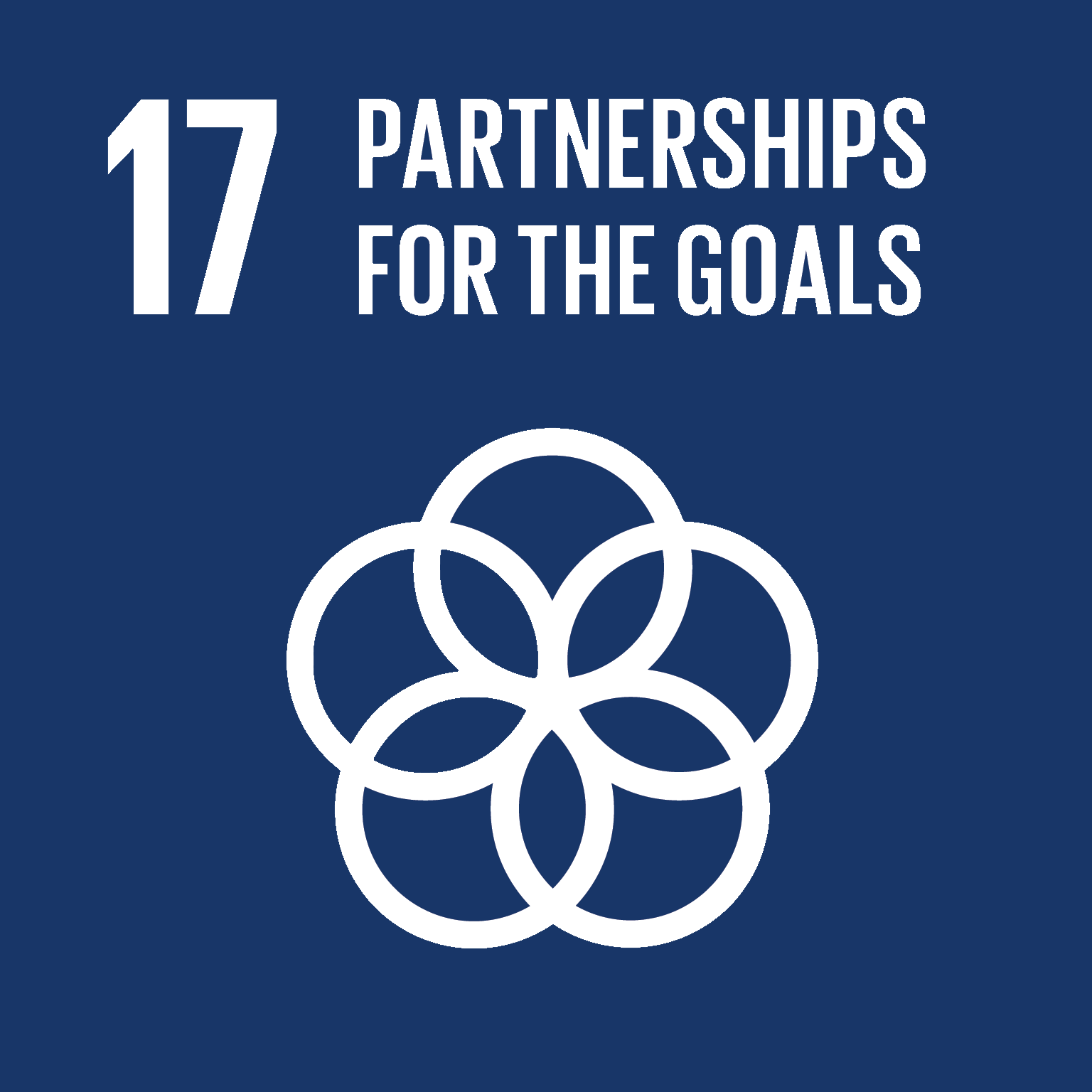
 Please click on the SDG14 colored icon to see to which specific SDG14 targets this initiative is contributing.1. End poverty in all its forms everywhere
Please click on the SDG14 colored icon to see to which specific SDG14 targets this initiative is contributing.1. End poverty in all its forms everywhere
2 End hunger, achieve food security and improved nutrition and promote sustainable agriculture
3 Ensure healthy lives and promote well-being for all at all ages
4 Ensure inclusive and equitable quality education and promote lifelong learning opportunities for all
5 Achieve gender equality and empower all women and girls
6 Ensure availability and sustainable management of water and sanitation for all
7 Ensure access to affordable, reliable, sustainable and modern energy for all
8 Promote sustained, inclusive and sustainable economic growth, full and productive employment and decent work for all
9 Build resilient infrastructure, promote inclusive and sustainable industrialization and foster innovation
10 Reduce inequality within and among countries
11 Make cities and human settlements inclusive, safe, resilient and sustainable
12 Ensure sustainable consumption and production patterns
13 Take urgent action to combat climate change and its impacts
14 Conserve and sustainably use the oceans, seas and marine resources for sustainable development
14.2 By 2020, sustainably manage and protect marine and coastal ecosystems to avoid significant adverse impacts, including by strengthening their resilience, and take action for their restoration in order to achieve healthy and productive oceans14.5 By 2020, conserve at least 10 per cent of coastal and marine areas, consistent with national and international law and based on the best available scientific information15 Protect, restore and promote sustainable use of terrestrial ecosystems, sustainably manage forests, combat desertification, and halt and reverse land degradation and halt biodiversity loss
16 Promote peaceful and inclusive societies for sustainable development, provide access to justice for all and build effective, accountable and inclusive institutions at all levels
Other Regional and Global Commitments
Regional Emerging Issues
ABOUT
FROM VISION TO STRATEGIC ACTION
WORKING TOGETHER
PROJECTS AND INITIATIVES
ABOUT
MenuFROM VISION TO STRATEGIC ACTION
MenuWORKING TOGETHER
MenuPROJECTS AND INITIATIVES
MenuTOOLS
The CLME+ Hub is an initiative of the Secretariat of the CLME+ Interim Coordination Mechanism (ICM), in collaboration with the members of the CLME+ ICM and CLME+ Project Executive Group (PEG) and (prospective) Partner Organizations. Development of the Hub has benefited from the financial support of the UNDP/GEF Project: “Catalysing Implementation of the Strategic Action Programme (SAP) for the Sustainable Management of shared Living Marine Resources in the Caribbean and North Brazil Shelf Large Marine Ecosystems” (CLME+ Project, 2015-2020). The CLME+ Project is executed by the United Nations Office for Project Services (UNOPS) in close collaboration with a large number of global, regional and national-level partners. For more information on the CLME+ Project click here
Copyright © 2021 CLME + HUB
Menu
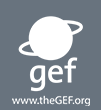
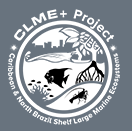

Cookies policy
We use cookies to enhance your site experience, to provide you with extra functionalities and for analytical purposes. You can consent to the use of such technology by accepting and closing this notice. If you want to find out more, please read our cookies policy here.
Welcome to SOMEE
MenuSOMEE content is still under development and is therefore not yet available online. However, you can already check for sample text and materials under the sections in blue text










